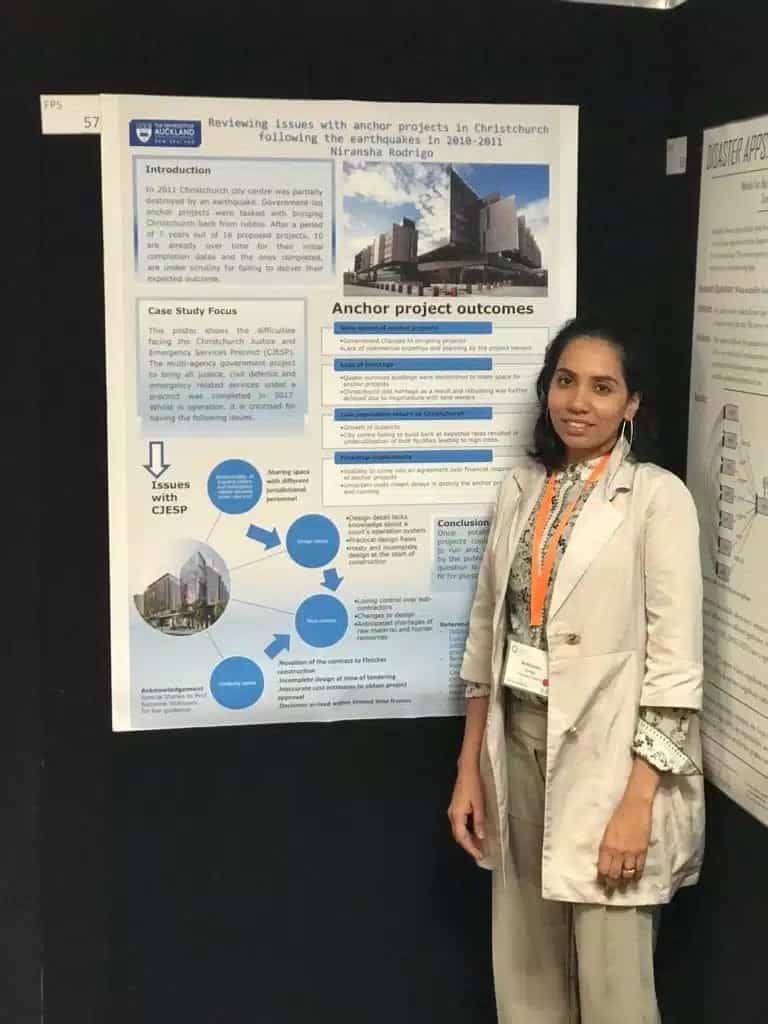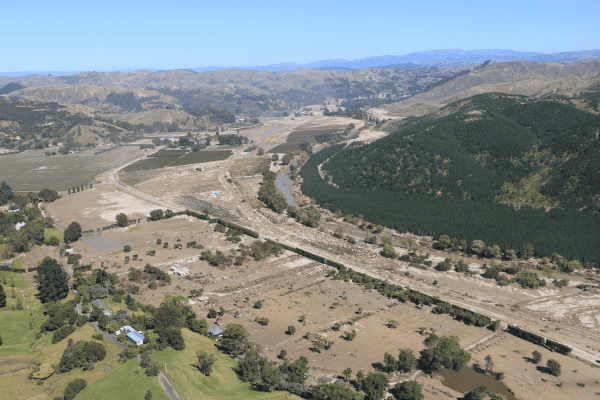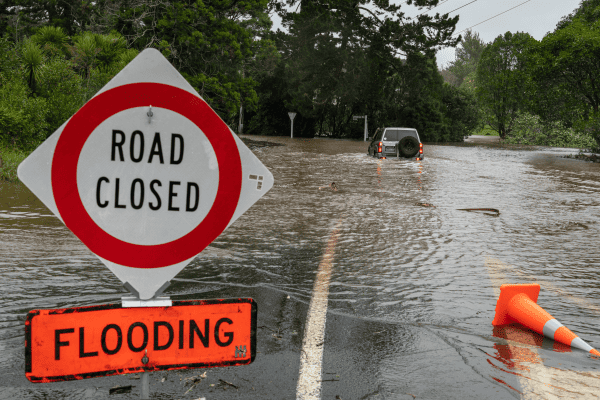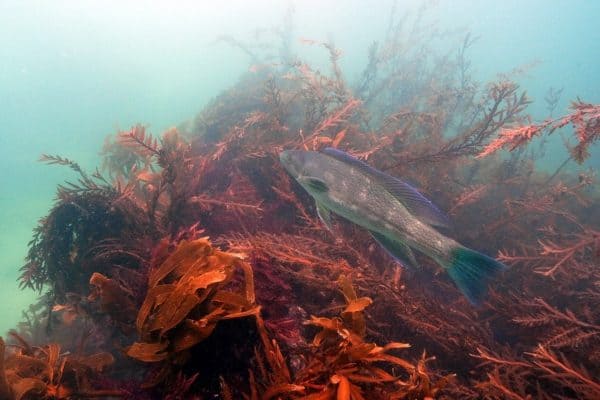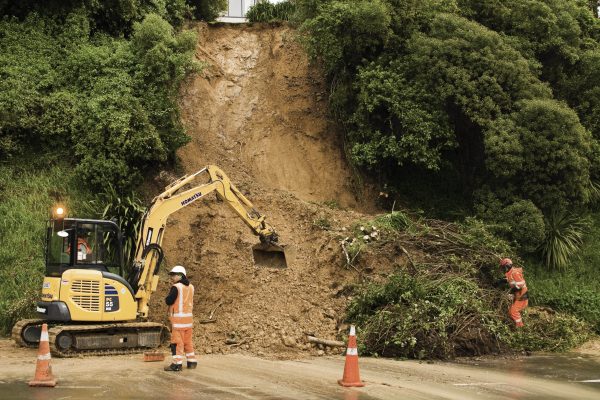Student profile: Niransha Rodrigo
8/02/2019
‘Anchor projects’ as cornerstones of city-rebuilding post-disaster
A bit about me
I’m from Sri Lanka, the island paradise of the Indian Ocean. I’m currently a second year Civil Engineering doctoral candidate at The University of Auckland. I initially completed my BA (Honours) in Economics at the University of Colombo whilst also reading for a Professional Post-Graduate qualification in Marketing. I then went to the UK where I did an MSc in Project Management and that led me to my current research in New Zealand in the area of disaster management. I’ve specialised in vastly different subject areas and I strongly believe that this sets me apart from the typical engineer. I believe knowledge in many areas is an added bonus when working in teams because knowing more gives one more control over the process.
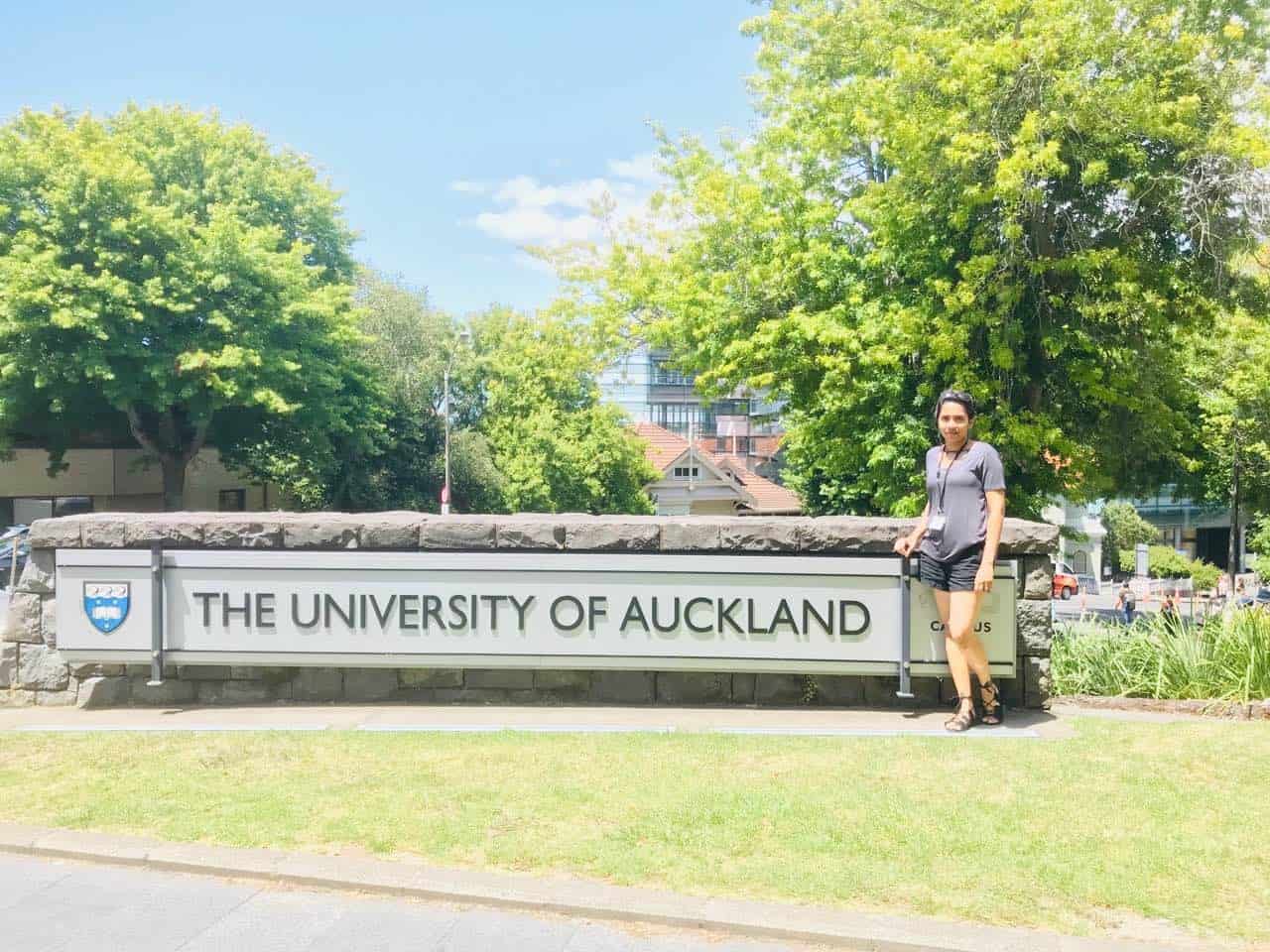
Even though my research focuses on disaster management, there is a huge part of me that loves art, languages and creativity in any form. As a result, I learnt French and then at one point started giving lessons too! I’m also totally into nature these days. I have fallen for the natural beauty of New Zealand and it has brought out the photographer, voyager and nature lover in me.
My project
A disaster marks a remarkable turn-around for a country, whether it is economic, social, political or a fusion of all three. Therefore, it is crucial that governments make the best decisions with regard to their post-disaster rebuilding. In the recent past, the world has witnessed cities being rebuilt through key public projects. These are also known as Anchor projects, Priority Projects, Catalyst Projects or Flagship projects. The main objective of these projects is to aid the rebuilding of cities post-disaster. Substantial investment, resources and time are dedicated to these. It is expected that these projects are pioneers in economic regeneration and are focal points in the urban plan following a disaster.
My work is mainly focused on understanding these key public projects that have been undertaken by governments in the developed world following large natural disasters. I’m using the case studies of the 2010-2011 Christchurch earthquakes and Australia’s 2009 Black Saturday Bushfires in Victoria. In Christchurch only a handful of projects out of the proposed 17 have been completed 9 years down the line (see the map of proposed Christchurch Anchor Projects below).
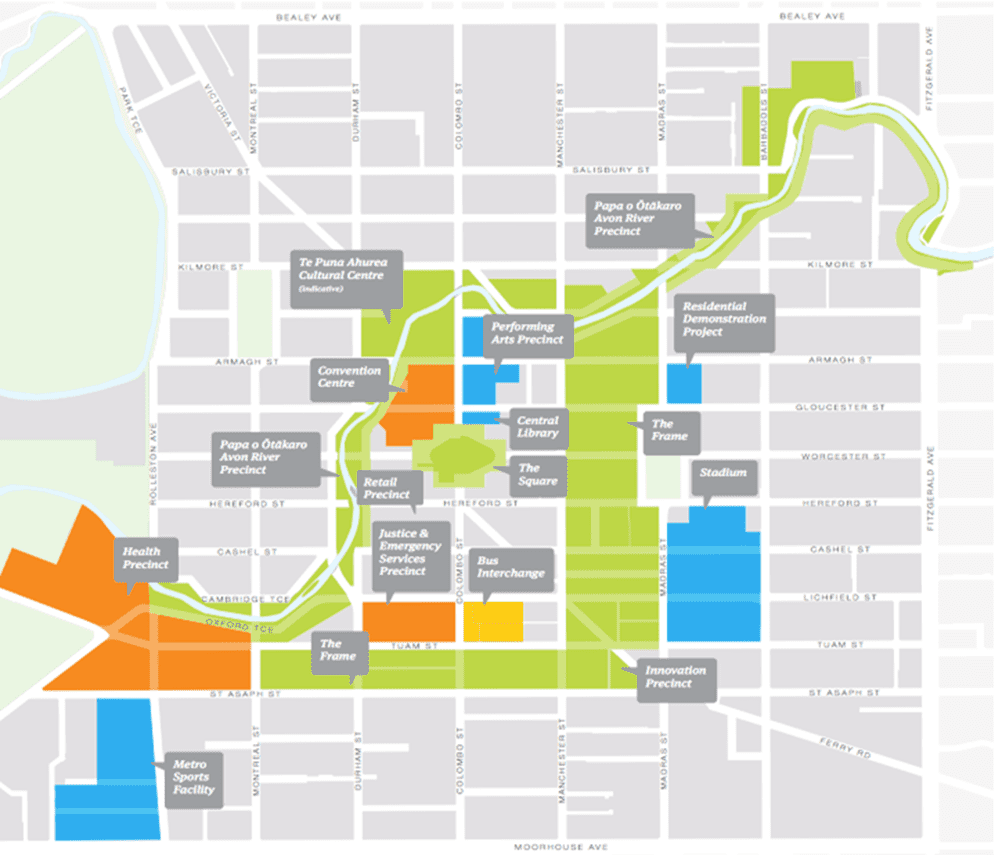
In Australia, although the projects were completed on time, whether they have delivered what was expected remains to be seen. Planning, decision-making, resource management and project portfolio management may have contributed to the negativity surrounding them.
Next steps
I will start my first phase of data collection in March, 2019. This will involve conducting one on one semi-structured interviews with government officials in both Victoria and Canterbury. I hope to gain an understanding of the planning process and the project management issues. The data gathered will be validated against findings from focus group discussions involving all stakeholders, including government officials, architects, contractors and the end users of these establishments. This phase will shed light on how planning and project management affect the end results of these projects. It is expected that my research will deepen the understanding of the role of anchor projects in post-disaster rebuilding efforts of the government. I will also produce best practice decision-making guidelines for future reference of the respective governments.
I am excited about the potential of this research as one of the few studies focusing on the role of public projects following a natural disaster. I also hope that the decision-making guidelines I produce will help governments make better decisions around post-disaster planning and government spending.
Niransha’s PhD is being supervised by Professor Suzanne Wilkinson and Dr Sandeeka Mannakkara and is being partially funded by the Resilience Challenge.
